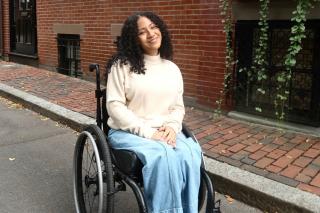How First‑Generation Commuter Students Can Succeed in Higher Education at Simmons University

Understanding the Unique Landscape of First‑Generation Commuting
For many students, the idea of attending a university feels straightforward: enroll, attend classes, and graduate. The reality is far more complex for first‑generation students who juggle academic responsibilities with work, family, and transportation commitments. These students—often described simply as commuter students—must navigate a higher education environment that can be both welcoming and unforgiving. Simmons University recognizes this duality and offers a suite of resources designed to ease the transition, foster inclusion, and build a supportive community.
Key Challenges Faced by First‑Generation Commuter Students
- Transportation logistics: Regular commuting can consume hours of a student’s day, reducing time for study, extracurriculars, or even rest.
- Financial strain: Even with scholarships, many commuters manage part‑time jobs and living expenses that can derail their focus on coursework.
- Academic acclimation: Without a family history of college navigation, first‑generation students often encounter confusion around budgeting for textbooks, managing deadlines, or leveraging campus systems.
- Identity intersectionality: Students who also identify as LGBTQ+, people of color, or students with disabilities face layered barriers that sometimes go unaddressed.
Valeria Cardoza, a 2027 graduate of Simmons, exemplifies how these challenges can be met with the right supports. Raised in a low‑income Boston neighborhood, Valeria’s journey included balancing community service, a demanding academic load, and the needs of her family—all while using a wheelchair and navigating the campus as a first‑generation student.
Leveraging Institutional Support Programs
Bonner Community Leaders Program
The Bonner program pairs student leaders with local Boston community partners to foster weekly service hours. It offers:
- Leadership workshops focused on communication, project management, and social justice.
- Networking sessions with professionals in public policy, health, and law.
- Mentorship opportunities; for Valeria, this included guidance from Associate Director Courtney Kramer, whose counsel on scholarship applications and campus life proved pivotal.
The Boston Scholarship
Covering full tuition for high‑achieving students from Boston public high schools, this scholarship removes a significant financial hurdle. It also demonstrates Simmons’ commitment to local talent and can serve as a springboard for additional financial aid.
Accessibility Services
Students with physical or mental health accommodations can access a dedicated office that helps translate system policies into practical solutions. Consistent one‑on‑one meetings—such as those between Valeria and Accessibility Coordinator Jennifer Wong—enable participants to tailor accommodations effectively and to develop problem‑solving skills that translate beyond campus life.
REEF Support Center
Focused on resilience, efficacy, and empowerment, the REEF Center addresses food insecurity, mental health, and academic stress. Collaborative projects, like the “Free Food Market,” allow students to contribute directly to community well‑being while building executive‑level coordination experience.
Building Personal Academic Capital
Utilizing Office Hours
First‑generation students often underestimate the power of one‑to‑one time with professors. Office hours provide:
- A protected space to clarify dense material.
- Opportunity to discuss learning accommodations.
- A foothold in building relationships that can lead to research or internship opportunities.
Peer Study Groups
Forming or joining a study cohort with classmates can mitigate feelings of isolation. Peer discussion allows for multiple learning styles to surface and creates mutual accountability—a proven strategy to improve retention and exam performance.
Goal‑Setting and Reflection
Students who regularly set SMART (Specific, Measurable, Achievable, Relevant, Timely) academic and personal goals tend to stay on track. Periodic reflection—through journaling or counseling sessions—helps students internalize progress and maintain motivation, especially during stressful semesters.
Navigating the Systemic Barriers
Valeria’s narrative illustrates a common theme: a first‑generation commuter student often must learn how to ask for help. It can take weeks to months to identify the proper office for a particular need—whether it’s a financial aid question, a scheduling conflict, or a disability service request. Persistence and networking with office staff are essential; many students discover that the campus’s “help desk” and the Student‑Affairs office create a “helping network” that is, in practice, a critical infrastructure for success.
Online Tools and Resources
From Simmons’s online portal to its mobile app, students can schedule classes, check grades, and apply for scholarships without leaving home. These digital solutions are especially beneficial for commuters who cannot travel to campus frequently.
Community Events and Inclusion Initiatives
Programs focused on equity, diversity, and inclusion—such as First‑Finish—provide a cultural framework that recognizes and values students’ multiple identities. Participation gives students a sense of belonging and an opportunity to advocate for their peers, reinforcing leadership skills that extend beyond the classroom.
Strategies for Prospective Commuters and First‑Generation Students
- Identify scholarship opportunities early; many do not require a completed application—just academic transcripts.
- Connect with faculty or advisory services before enrollment; a pre‑college briefing can help you understand course expectations.
- Plan your daily schedule to allocate fixed blocks for commuting, studying, and self‑care to avoid burnout.
- Engage with university clubs related to your major or interests; many clubs meet online or offer hybrid options for commuters.
“If you’re a first‑generation commuter, show up in every way you can,” advises Valeria. That approach means embracing vulnerability when asking for help, celebrating small achievements, and maintaining a holistic view of progress.
Conclusion: The Road Ahead for First‑Generation Commuter Success
Higher education for first‑generation commuter students is not a linear path; it involves juggling multiple roles, learning institutional systems, and building a diverse support network. Simmons University’s intentional resources—Scholarship programs, accessibility services, community leadership initiatives, and online tools—work synergistically to empower students like Valeria to not only complete their degrees but to become influential leaders in public service and beyond.
Ready to Take Your Next Step?
- Submit your application to Simmons today and explore first‑generation scholarships.
- Schedule a free consultation with the admissions office to discuss commuter student resources.
- Join Simmons’ first‑generation orientation session to meet fellow students and advisors.
- Learn more about the Bonner Community Leaders Program and how it can shape your career path.

